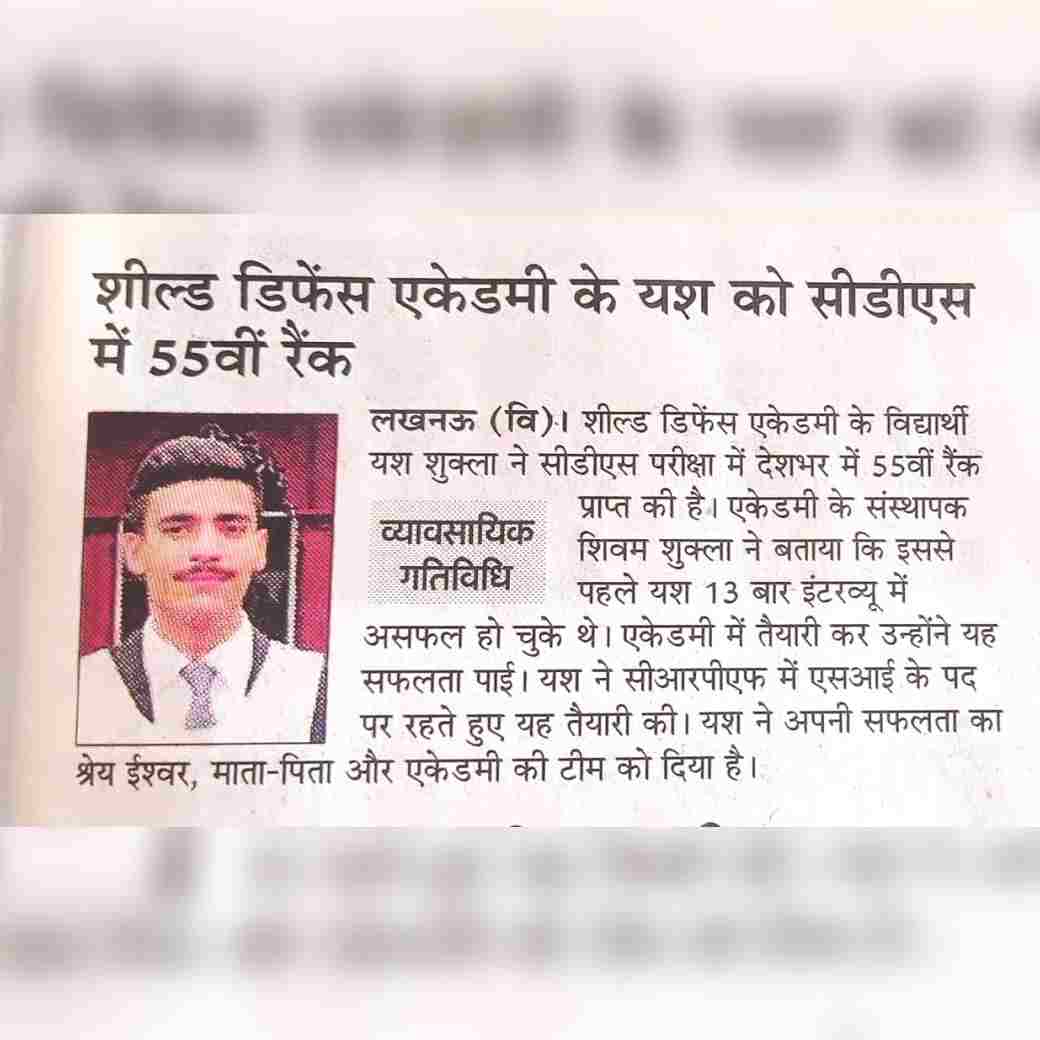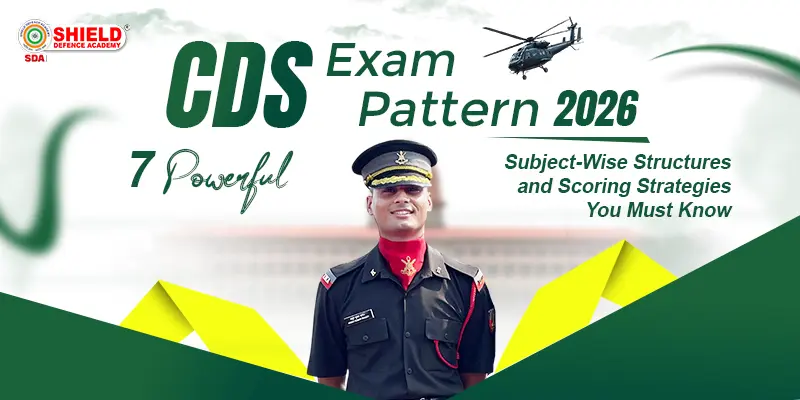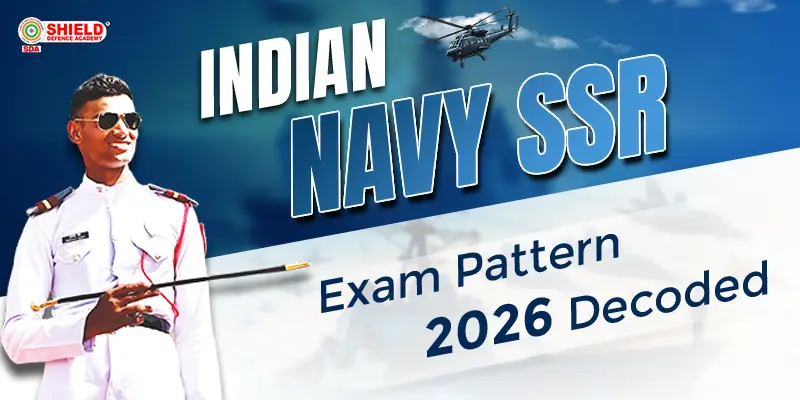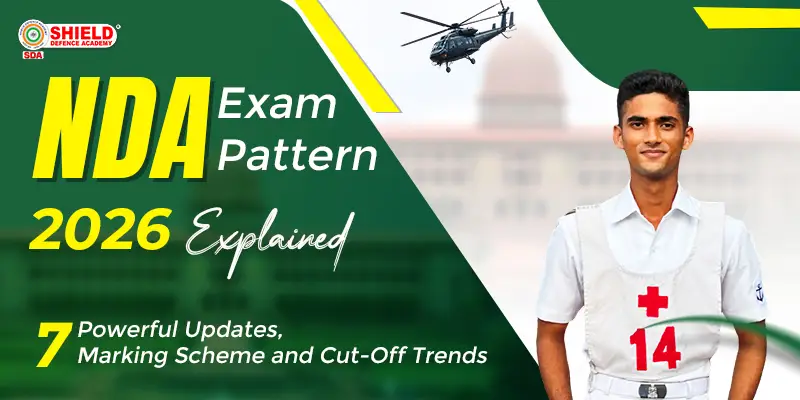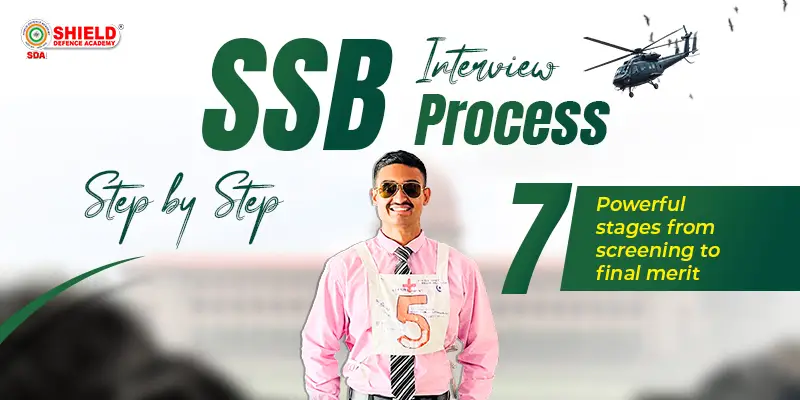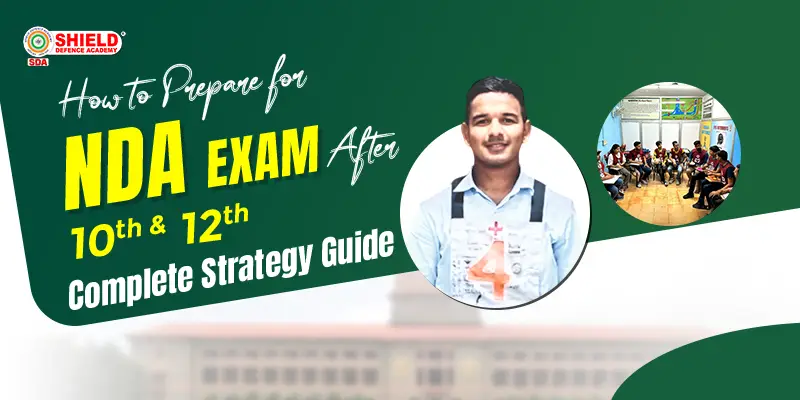The Word Association Test (WAT) conducted during the SSB interview is a crucial component for assessing a candidate’s psychology and suitability for a career in the defense forces. It aims to provide insight into a candidate’s personality, thought process, and emotional responses. Mastering the WAT can significantly enhance one’s chances of success in the SSB interview. In this blog, we will delve into the nuances of the SSB Word Association Test, examine the methodology, and provide valuable tips for excelling in this critical aspect of the interview process. Are you ready to take the next step in your defense career? Look no further than Shield Defence Academy, where we offer expert training for the Word Association Test (WAT) by Retired Armed Force Officers from the SSB Interview Board. Our academy is committed to providing top-notch, comprehensive coaching that will set you on the path to success in your defense career.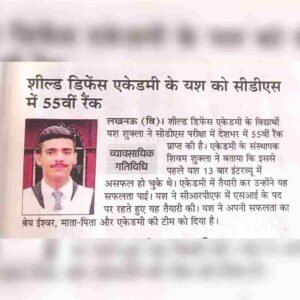
Understanding the SSB Word Association Test ( WAT ):
The Word Association Test is designed to evaluate a candidate’s thought process, emotional responses, and spontaneity in association with a given stimulus word. In the SSB WAT, candidates are presented with a set of 60 words, and for each word, they are required to construct a meaningful sentence within a specified time limit. The purpose of this test is to analyze the thought patterns, psychological makeup, and inherent personality traits of the individual.
The WAT aims to elicit unfiltered responses from the candidates, showcasing their cognitive agility, emotional intelligence, and intrinsic tendencies. The SSB assessors use these responses to gauge the candidate’s creativity, adaptability, assertiveness, and overall personality traits, which are essential for a career in the defense forces.
100 Examples of Word Association Test ( WAT ):
The Word Association Test (WAT) is a critical component of the SSB interview process, designed to assess a candidate’s thought process, emotional responses, and social attitudes. Here are 100 examples of Word Association Test prompts that may be used during the SSB interview:
1. Time- of utilizing time effectively.
2. Family- emphasizing the values of love.
3. Nation – Love nation.
4. Challenge – Accept challenge.
5. Education – Portrays the significance of learning.
6. Adventure – Represents excitement.
7. Loyalty – Be loyal to country.
8. Responsibility – Signifies the sense of duty.
9. Courage – Indian army is courageous.
10. Success – Hard work leads to success.
11. Sacrifice – Sacrifice bad habits.
12. Patriotism – Show patriotism towards nation.
13. Authority – Use authority judicially.
14. Teamwork – Honey is a product of teamwork.
15. Power – Use power judicially.
16. Leadership –Effective leadership bring success.
17. Innovation – creativity leads to innovation
18. Unity – Portrays harmony.
19. Ambition – determination FULFILLS AMBITION.
20. Integrity – honesty and moral uprightness brings intergrity.
21. Discipline 22. Environment
23. Motivation 24. Technology
25. Service 26. Confidence
27. Strength 28. Friendship
29. Duty 30. Competition
31. Hard work 32. Respect
33. Tradition 34. Adversity
35. Compassion 36. Diversity
37. Inspiration 38. Determination
39. Creativity 40. Adaptability
41. Community 42. Prosperity
43. Security 44. Sacrifice
45. Initiative 46. Harmony
47. Perseverance 48. Commitment
49. Trust 50. Faith
51. Respect 52. Change
53. Honor 54. Independence
55. Discipline 56. Skill
57. Freedom 58. Justice
59. Respect 60. Faith
61. Optimism 62. Growth
63. Tradition 64. Confidence
65. Adaptability 66. Honour
67. Integrity 68. Enthusiasm
69. Empathy 70. Resilience
71. Sacrifice 72. Purity
73. Humanity 74. Wisdom
75. Pride 76. Resourcefulness
77. Determination 78. Progress
79. Empowerment 80. Harmony
81. Health 82. Tolerance
83. Equality 84. Heritage
85. Adventure 86. Purpose
87. Bravery 88. Unity
89. Courage 90. Gratitude
91. Legacy 92. Creativity
93. Sustainability 94. Prosperity
95. Patriotism 96. Justice
97. Vision 98. Opportunity
99. Harmony 100. Leadership
These prompts are designed to elicit spontaneous responses from candidates, offering insights into their values, personality, and attitude towards various concepts. Effective preparation and practice can help candidates develop the cognitive agility and emotional intelligence required to excel in the Word Association Test during the SSB interview.
Methodology of the SSB Word Association Test ( WAT ):
During the SSB Word Association Test, candidates are presented with a series of words, one at a time, and are required to write down the first thought or phrase that comes to their mind in response to each word. The time limit for responding to each word is typically 15 seconds, which emphasizes quick thinking and spontaneous reactions. The responses provided by the candidates are then analyzed to gain insights into their subconscious personality traits and behavioral tendencies. At Shield Defence Academy, Retired Armed Force Officers from the SSB interview board, bringing with them years of experience and expertise in the field. They have firsthand knowledge of the selection process and are dedicated to equipping aspirants with the skills and knowledge you need to excel in the WAT.
Tips provided by Ex Officers for Excelling in the SSB Word Association Test ( WAT ):
1. Stay Calm and Composed:
Maintaining composure during the WAT is essential as it allows for clear thinking and effective response generation. Deep breaths and a calm mindset can aid in enhancing cognitive clarity and spontaneity in responses.
2. Practice Mindfulness:
Cultivating mindfulness can significantly improve response agility and authenticity in the WAT. Being attuned to the present moment and allowing thoughts to flow naturally can lead to genuine and insightful responses.
3. Enhance Vocabulary:
Expanding one’s vocabulary can be advantageous in formulating diverse and meaningful responses during the WAT. Reading extensively, learning new words, and understanding their contextual usage can enrich the quality of responses.
4. Be True to Yourself:
Authenticity is key during the WAT. Responding genuinely to the stimulus words reflects transparency and self-awareness, which are valued attributes in the assessment process.
5. Time Management:
Practicing time management is crucial for the WAT, as each response must be formulated within a limited time frame. Developing the ability to think swiftly and articulate concise yet meaningful sentences is vital.
6. Develop a Positive Mindset:
Cultivating a positive and optimistic mindset can influence the responses provided during the WAT. Embracing a constructive outlook can lead to affirmative and confident responses.
7. Seek Feedback:
Engaging in mock WAT sessions and seeking feedback from mentors or peers can offer valuable insights into refining response strategies and enhancing performance.
8. Stay Informed:
Being well-versed with current events, general knowledge, and a diverse range of topics can aid in formulating informed and comprehensive responses during the WAT.
9. Practice Regularly:
Engaging in consistent practice sessions for the WAT can hone response accuracy, improve speed, and enhance overall performance during the SSB interview.
10. Reflect on Responses:
Reflecting on past responses and analyzing areas of improvement can facilitate progressive growth and refinement in response formulation.
Shield Defence Academy has a strong track record of success and from the very beginning focuses on these soft but important skills, with numerous students having secured admission into prestigious Defense Institutions after receiving training at Shield Defence Academy. We take pride in the accomplishments of our students and are committed to enabling your success in the WAT.
The Impact of Responses in the SSB Word Association Test
The responses provided during the SSB Word Association Test carry considerable weight in shaping the overall assessment of a candidate’s personality. The SSB assessors meticulously analyze the responses to gain insights into the candidate’s thought process, behavioral tendencies, emotional intelligence, adaptability, and decision-making abilities. The responses not only reflect the candidate’s cognitive agility but also serve as indicators of their spontaneity, clarity of thought, depth of insight, and emotional resilience.
Key Attributes Evaluated through the SSB WAT Responses
1. Creativity and Originality:
The responses in the WAT reflect the candidate’s creative and original thinking ability in association with the stimulus words. Innovative and unique responses showcase a candidate’s lateral thinking and imaginative prowess.
2. Emotional Stability:
The manner in which a candidate responds to the stimulus words offers insights into their emotional stability, coping mechanisms, and mature outlook towards varying situations.
3. Leadership Potential:
The responses provided during the WAT can reveal inherent leadership potential, decision-making acumen, and assertive communication skills, which are crucial for a career in the defense forces.
4. Adaptability and Flexibility:
Assessing the adaptability and flexibility of a candidate’s responses in the WAT provides vital indicators of their capacity to adjust to dynamic and challenging circumstances.
5. Decision-Making Aptitude:
The responses offer glimpses of a candidate’s decision-making aptitude, critical thinking skills, and ability to think on their feet, essential attributes for leadership roles.
6. Communication Skills:
Clarity, coherence, and articulation in the responses portray a candidate’s effective communication abilities, which are pivotal for leadership and teamwork in the defense forces.
7. Confidence and Assertiveness:
Confident and assertive responses depict a candidate’s self-assurance, conviction, and proactive approach, all of which are highly valued in the defense forces.
Strategies to Enhance Performance in the SSB Word Association Test
1. Develop a Response Framework:
Formulating a systematic approach to generating responses in the WAT can help in structuring thoughts and improving response coherence.
2. Embrace Diverse Perspectives:
Cultivating an open-minded approach towards various topics and stimuli can facilitate the formulation of diverse and insightful responses during the WAT.
3. Stay Updated with Current Affairs:
Remaining abreast of current events, national and international developments, and trending topics can enrich responses and broaden the spectrum of associations with stimulus words.
4. Emphasize Clarity and Relevance:
Focusing on clarity, relevance, and succinctness in responses can enhance the impact and effectiveness of the WAT responses.
5. Cultivate Mental Agility:
Engaging in activities that stimulate mental agility and cognitive flexibility, such as puzzles, riddles, and brainstorming exercises, can enhance response generation capabilities.
6. Seek Peer Collaboration:
Collaborating with peers for joint WAT sessions can foster shared learning, diverse perspectives, and constructive feedback, contributing to overall improvement.
7. Refine Time Management Skills:
Practicing under time constraints and honing the ability to think swiftly and cohesively within the stipulated time frame is pivotal for success in the WAT.
8. Cultivate a Reflective Practice:
Regularly reviewing and reflecting on past responses, seeking feedback, and identifying areas of improvement can aid in refining response strategies and enhancing performance.
Enroll at Shield Defence Academy today, and take the first step towards realizing your dream of joining the defense forces. Our WAT preparation program led by Retired Armed Force Officers from the SSB Interview Board is tailored to provide you with the knowledge, skills, and confidence necessary to ace the WAT and embark on a fulfilling career in defense
Conclusion:
The SSB Word Association Test serves as a valuable tool for assessing a candidate’s cognitive agility, emotional intelligence, and inherent personality traits, which are essential for a career in the defense forces. Mastering the WAT requires a blend of spontaneity, authenticity, mental agility, and effective communication skills. By embracing mindfulness, regular practice, and a positive mindset, candidates can enhance their performance in the WAT and significantly improve their prospects of success in the SSB interview. Developing a comprehensive understanding of the SSB WAT, coupled with dedicated preparation and strategic response formulation, can be instrumental in achieving success and realizing the aspiration of a career in the defense forces.
Join us at Shield Defence Academy and let us help you turn your aspirations into achievement. Your journey towards a successful defense career starts here. Don’t miss this opportunity—enroll today and prepare to soar to new heights with Shield Defence Academy!
Also read: A Comprehensive Guide to Master Self-Description Test in the SSB
